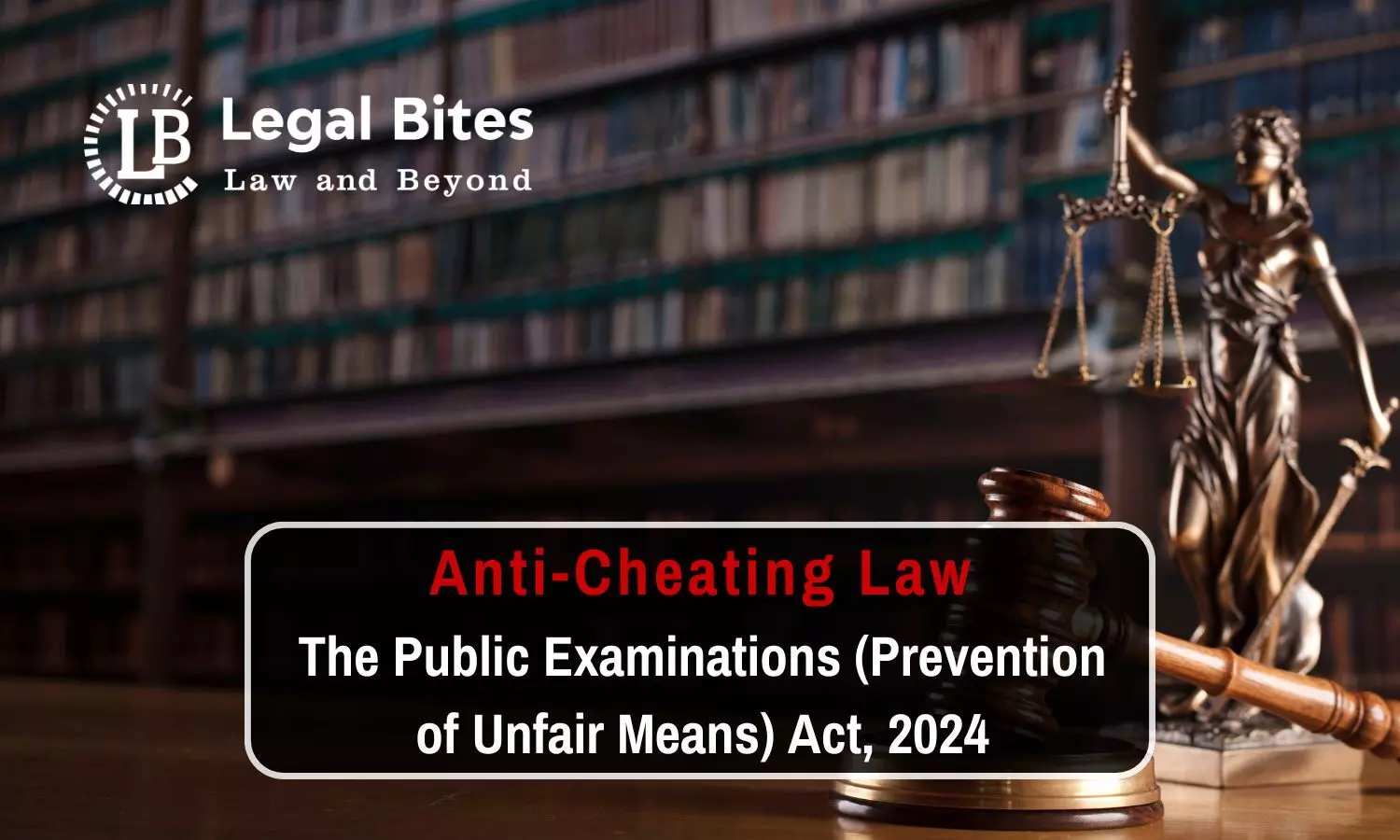The Public Examinations (Prevention of Unfair Means) Act, 2024: All You Need to Know
The enforcement of the Public Examinations (Prevention of Unfair Means) Act, 2024, marks a significant milestone in the Indian education and recruitment landscape.

The Public Examinations (Prevention of Unfair Means) Act, 2024 came into effect on the 21st day of June, 2024.
Parliament on February 9, 2024, passed the landmark Public Examinations (Prevention of Unfair Means) Bill, 2024, aimed at curbing malpractices and irregularities in competitive examinations. Union Minister Jitendra Singh emphasized that this bill is a crucial step to deter those who compromise the future of the youth by engaging in unfair practices. This comprehensive legislation introduces stringent punitive measures to maintain the integrity of government recruitment exams.
Key Provisions and Punishments
The Act, which came into effect on June 21, 2024, as notified by the Department of Personnel and Training (DoPT), includes severe penalties for various offenses related to examination malpractices. Here are the major points of the bill:
Offenses and Penalties
- Leakage of Question Papers or Answer Keys: Any unauthorized disclosure of exam materials.
- Assisting Candidates Unauthorisedly: Helping candidates through illegal means during examinations.
- Tampering with Computer Systems: Manipulating computer networks or systems related to the exam process.
- Creating Fake Websites: Establishing fake websites to deceive candidates or for financial gain.
- Conducting Fake Examinations: Organizing bogus exams and issuing fake admit cards or offer letters.
- Manipulating Exam Logistics: Altering seating arrangements, dates, and shifts to facilitate cheating.
For individuals involved in these activities, the Act prescribes a minimum imprisonment of three years, extendable up to five years, along with a fine up to ₹10 lakh.
Service Providers' Liability
Service providers engaged by examination authorities are also under scrutiny. Any such entity found guilty of malpractice can face fines up to ₹1 crore. Additionally, they must bear the proportionate cost of the examination and are barred from participating in public examination processes for four years. The Act defines a service provider broadly, covering agencies, organizations, companies, partnerships, and individuals involved in exam-related services.
Government's Stance
Union Minister Jitendra Singh highlighted the importance of this legislation in safeguarding the integrity of competitive examinations. By imposing strict penalties, the government aims to protect the aspirations and futures of millions of young candidates. The Act ensures that individuals and organizations are held accountable for their actions, thereby deterring potential offenders.
Implementation and Impact
The enforcement of the Public Examinations (Prevention of Unfair Means) Act, 2024, marks a significant milestone in the Indian education and recruitment landscape. With robust measures in place, the Act aims to restore and maintain trust in the examination process. Aspiring candidates can now be more confident in the fairness and transparency of competitive exams.
Conclusion
The Public Examinations (Prevention of Unfair Means) Bill, 2024, is a decisive step by the Indian government to eradicate examination malpractices. With stringent punishments and comprehensive definitions of offenses, the Act is poised to enhance the credibility of public examinations. As it comes into force, stakeholders across the education and recruitment sectors must align with the new regulations to ensure a fair and just examination environment.

